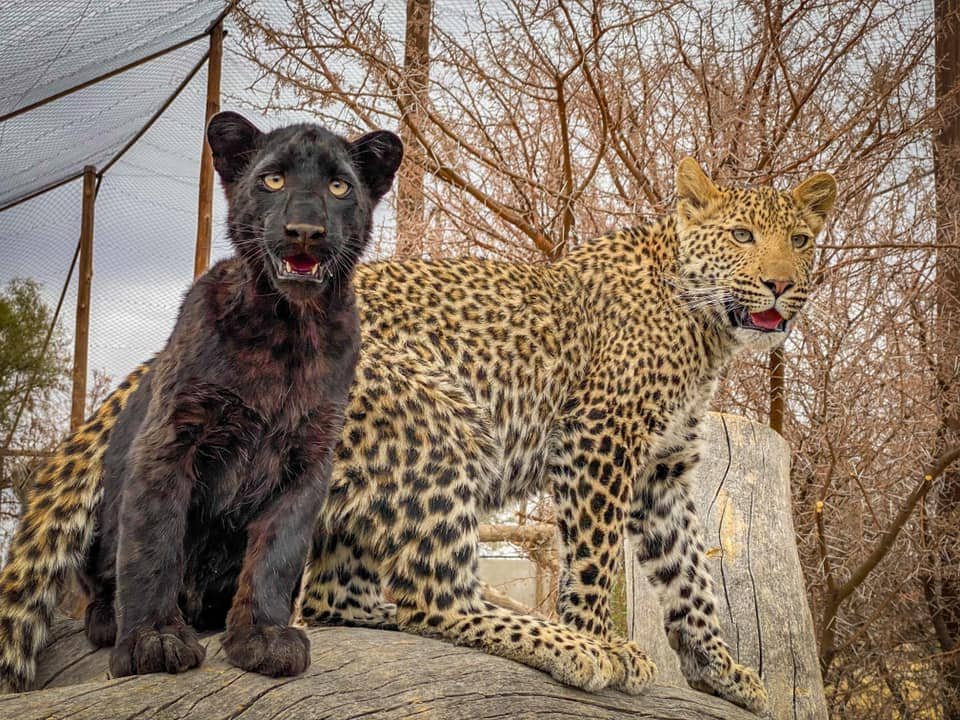At the Kimberley rescue farm, a sanctuary for many animals that can no longer return to the wild, this project is ideal for participating in sustainable tourism! Volunteers will have the chance to contribute to animal welfare and take part in all tasks: cleaning, building enclosures, feeding the animals, gardening… The volunteers’ schedule is flexible and must adapt to the needs of the sanctuary (usually 5 days per week).
“Family” projects are suitable for children from 4 years old. Our advisors will provide personalized recommendations based on your children’s age, the destination, and the type of mission.
Rescuing animals from illegal trade, trophy hunting, domestic use, and those threatened by surrounding agricultural activities while learning how to practice sustainable tourism.
Support the local team in ensuring the smooth running of the farm and contribute to the well-being of the felines.
Schedule: Monday to Friday, from 8:00 AM to 5:00 PM (variable).
As a volunteer, you will participate in the daily operations of the wild feline rescue center. Note that tasks may vary depending on weather conditions, conservation priorities, or the availability of certain materials.
Your tasks may include:
As a volunteer, you will assist the local team in daily tasks. As a non-profit family-run farm, they also facilitate farm visits for local visitors. Volunteers may help with these visits and even work in the gift shop.
Various projects are constantly evolving to improve the farm and the well-being of the animals. These projects change continuously based on the animals’ needs and the farm’s current situation.
Tasks that do not involve direct interaction with the animals are still crucial to their well-being. General maintenance and cleaning of the grounds (e.g., mowing the grass to ensure there are no ticks, fleas, snakes, or spiders, and waste collection) are regular tasks at the farm to ensure the health and safety of all the animals in our care.
As a volunteer, you will have the opportunity to experience each of the different jobs at the farm. Tasks are rotated among the volunteers to ensure that everyone has a chance to contribute to farm maintenance and interact with the animals equally.
– After waking up at 7:00 AM and having breakfast with the volunteer team, you will plan the day’s schedule and assign daily tasks together.
– Throughout the day, you may participate in tours, food preparation, enclosure work, feeding sick animals, and more.
– Lunch break: free time to do your laundry, take a nap, spend time with other volunteers, or even help prepare an evening event.
– After a warm dinner, you will do a final check of the feline enclosures to ensure everything is in order.
– Enjoy a well-deserved rest!

Duration during the week | Budget total mission |
|---|---|
2 weeks | 1820 € |
3 weeks | 2460 € |
4 weeks | 3100 € |
5 weeks | 3740 € |
6 weeks | 4380 € |
7 weeks | 5020 € |
8 weeks | 5710 € |
9 weeks | 6400 € |
10 weeks | 7090 € |
11 weeks | 7780 € |
12 weeks | 8470 € |


3 meals per day are included.
– Breakfast consists of cereals, fruits, yogurt, toast, and spreads.
– Lunch includes bread, cold cuts, salad, cheese, spreads, and fruit.
– Dinner is a hot meal such as a traditional South African barbecue (braai). All dinners include meat, starches, and vegetables.
Tea and coffee are available for volunteers, as well as a fridge to store their own food and drinks. Please inform us in advance if you have any special dietary requirements.
There is a laundry service available. You can wash your clothes yourself, or we can do it for 50.00 R per load. Please note: we are not responsible for any damage caused to clothing during washing or ironing.
There is no Wi-Fi at this project due to poor reception. We recommend purchasing a SIM card upon arrival for internet access.
– Vaccinations: Diphtheria, Typhoid, Typhus, Hepatitis A, and Polio. Rabies and anti-malaria medication are recommended but not mandatory.
– Copy of passport.


| | Merci pour votre abonnement |
